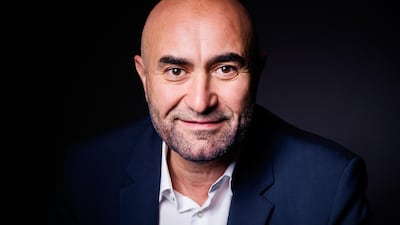Ronaldo Mouchawar, the co-founder and chief executive of Souq.com has said that “for now, Souq will continue to operate its current websites as is” following the completion of the US$650 million (Dh2.39bn) acquisition by Amazon.com this week.
The deal, announced in March, has been formally concluded with work on integration under way, the two companies said. Customers are now able to log into Souq using their Amazon account details.
Mr Mouchawar described this as “a milestone for the online shopping space in the region” as it made its offering much more accessible, adding that the company would now be “moving into the next phase of the integration to bring more products and offerings to the region’s customers”.
Currently, Souq offers more than 8.4 million products across 31 categories, but Amazon offers 480 million products worldwide.
“It is an exhilarating time for the e-commerce industry in the region. Integration of Amazon’s technology and global resources with our local expertise will help us to offer a great service to our loyal customers,” Mr Mouchawar said.
Amazon.com’s senior vice-president for its international consumer business, Russ Grandinetti, said: “We are working to quickly integrate Souq and Amazon capabilities, in terms of both customer experience and fulfilment, to provide an ever-improving shopping experience for customers in the Middle East.”
Souq is the region’s biggest online marketplace, and it currently attracts 45 million visits per month, with localised operations in the UAE, Saudi Arabia and Egypt.
Just before Amazon and Souq announced their tie-up in March, a last-minute, $800m bid for Souq was submitted by Emaar Malls, the shopping mall division of Emaar Properties, which subsequently bought a 51 per cent stake in online fashion retailer Namshi for $151m.
Mr Mouchawar said that the tie-up between Souq and Amazon was "guided by many of the same principles as Amazon" and that the deal provided a critical step in growing its customer base.
Mohamed Alabbar, the Emaar Properties’chairman, is also heading the launch of noon.com – a $1bn e-commerce start-up which has received about $500m in funding from Saudi Arabia’s Public Investment Fund. This was initially due to be launched in January, but has yet to commence operations. It recently bought out competitor Jadopado.com for an undisclosed sum.
David McAdam, the chief executive of the Middle East Council of Shopping Centres, said that e-commerce penetration rates in the region remain "very low", owing partly to a hesitancy in the region for sharing credit card information online, as well as the fact that "last mile" delivery is more problematic in Middle East markets.
“This last mile delivery is such a headache for so many different businesses. Amazon still loses money on its last mile delivery [in the US]. How are they going to do that here? There’s a long way to go before it’s really smooth.”
However, he said that despite such problems, a continued growth in e-commerce sale in the region is inevitable.
“Of course it will come – it’s just a matter of when,” said Mr McAdam.
“I think the other thing that is important to know is that one of the ways in which Amazon grows is to gather more products online. I think that some of the franchise owners here of brands will probably join in the Amazon movement and pay a fee to Amazon to list their products online as long as the pricing that they agree to enables them to carry on in the stores as well as in the online market. It will happen, but it’s going to take time for everyone to embrace these changes.”
Mr Mouchawar said that it was continuing its efforts to promote consumer confidence in the region's e-commerce. "We recently collaborated with Dubai Economy for co-operation on the 'Digital Protection' initiative for consumer rights. This makes Souq the first certified e-commerce website to display the consumer protection logo of Dubai Economy," he added.


